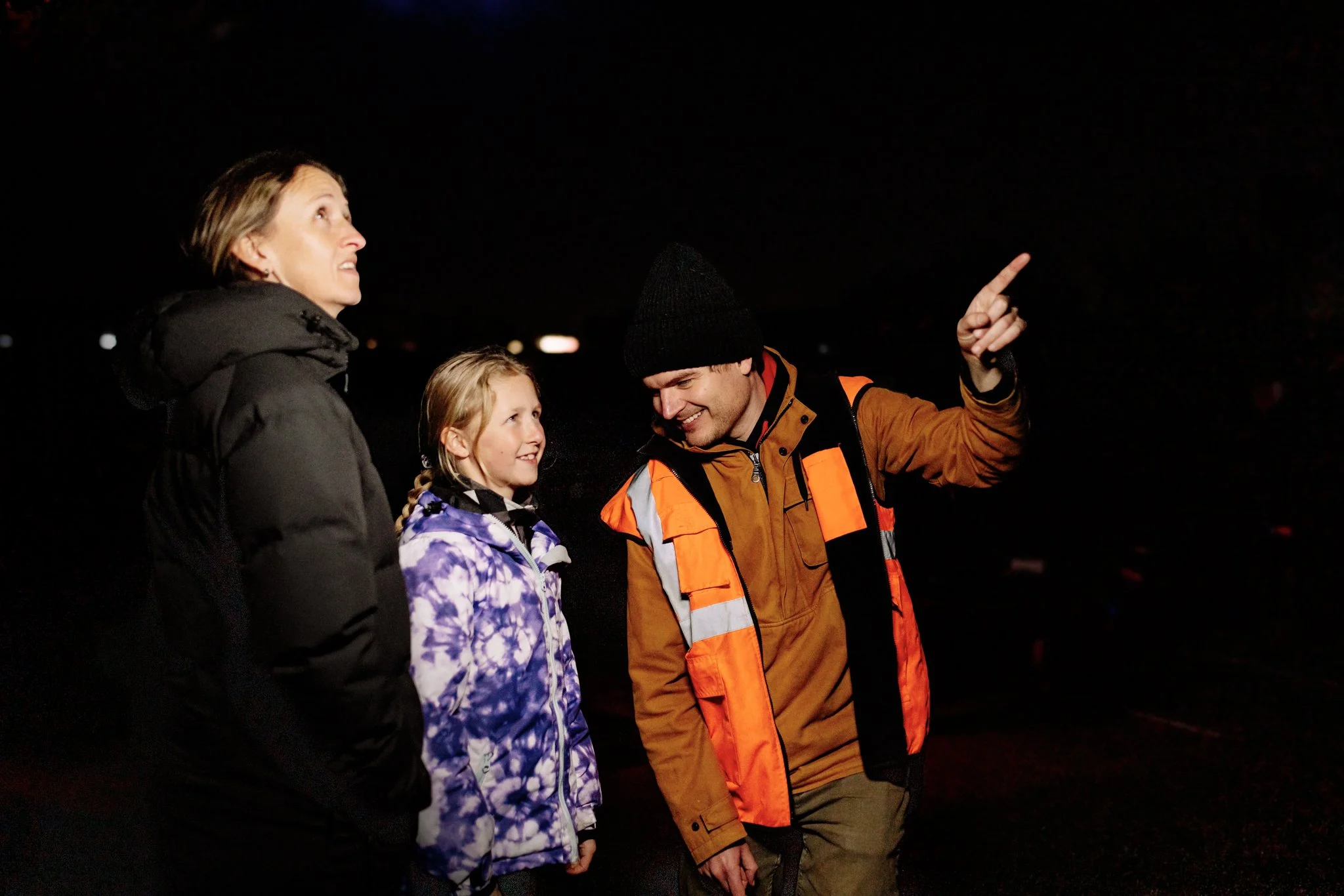Exploring space, inspiring curiosity
Year 7-8 teacher Kellen Gillstrom is inspiring young people — and their whānau — to think about what being a scientist really means.
Our Impact
The Tait Foundation is helping Canterbury teachers grow as science educators and leaders, through our fully funded SAT STEP programme.
The Story
On a crisp winter’s night in Ōtautahi, more than 250 students and whānau gathered at Marshland School Te Rito Harakeke for an astronomy evening. The stars were out — and so were two high-powered Telestron refraction telescopes, on loan from the University of Canterbury.
Students and parents took turns spotting star clusters, observing celestial patterns, and connecting their in-class curriculum with the vastness of the night sky. The event was a hands-on opportunity to explore space science, as well as a celebration of science as a community experience.
The evening was organised by Kellen Gillstrom, a year 7-8 teacher who now holds a science leadership role at Marshland School. He credits the Tait Foundation’s SAT STEP programme as the catalyst.
“I was part of the first cohort in 2023,” Kellen explains. “I already had a keen interest in science and STEM, and SAT STEP gave me the support and structure to turn that into something bigger.”
SAT STEP provides Canterbury teachers with a fully funded release day each week, for a full year, to grow their confidence and capability in science teaching. The first two terms focus on hands-on learning and critical thinking; the latter terms support teachers to apply their learning back at school.
“For me, the biggest growth came in understanding the balance between the functional and conceptual sides of science,” says Kellen. “Science isn’t just about knowing how gravity works. It’s about being curious, thinking critically and exploring new knowledge.”
Since completing the programme, Kellen has taken on a school-wide science leadership role, spending one day a week in classrooms from Years 1 to 8, helping colleagues bring science to life across the curriculum.
“Teaching science can feel intimidating if you’re not confident,” he says. “But if you start with hands-on activities it becomes engaging and fun, for teachers as well as students.”
Kellen continues to draw on the tools and relationships formed through SAT STEP and regularly connects with other alumni of the programme to share ideas and support.
He encourages any teacher with even an inkling of interest in science to apply.
“If you’re thinking about how to make your classroom more engaging, inspiring and connected, SAT STEP is a great way to get there.”
For Kellen, science isn’t just about future careers. It’s about preparing students to think critically and make sense of a world rife with rumour and misinformation. He believes that’s why strong science teaching matters in every classroom — and why programmes like SAT STEP are so important for Aotearoa’s future.







